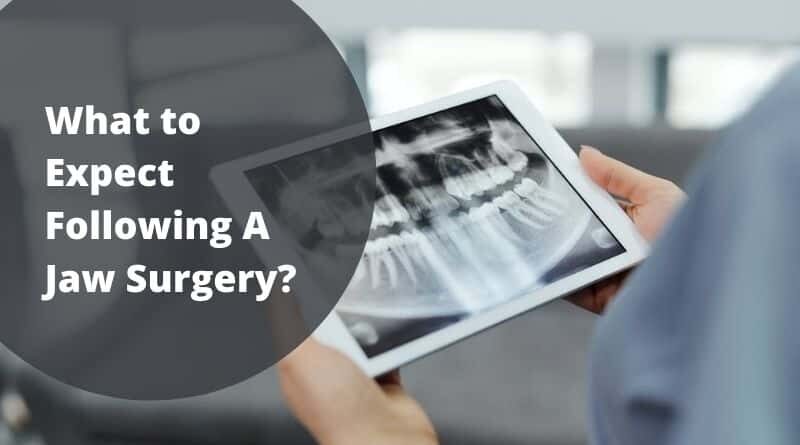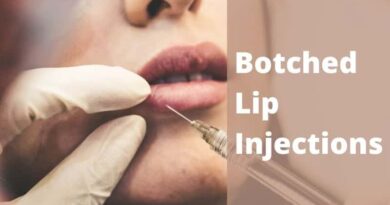What to Expect Following A Jaw Surgery?
The jaw is not only an important feature that structures your face, but it also has some significant functions. The primary roles of the jaw include aiding in chewing, speaking, and controlling air flow to the mouth. Some jaw disorders may be caused by accident, while others are genetic, and one is born with them. These jaw inadequacies may hinder the quality of life for the sufferer.
However, with orthognathic surgery, doctors can fix jaw problems entirely. So what should you expect after getting jaw surgery? Below is a list of some of the things you should be on the lookout for.
Table of Contents
Expect After Getting Jaw Surgery
Pain Management and Medication
Pain is part and parcel of any surgery, and this fact also applies to oral and maxillofacial procedures. You will be under anesthesia during the process; thus, you will feel only a little discomfort. Jaw surgery is done under local anesthesia. Therefore you will only experience a little discomfort. You will be given a mild pain reliever in syrup form.
For the most part, codeine is prescribed to be taken as per the doctor’s instruction. Your doctor will prescribe other medications such as anti-inflammatory and anti-steroids to cater to the swelling post-surgery. The doctor will prescribe nasal decongestants in some cases, especially if you had maxillary osteotomy. Antibiotics before and after surgery are a must to reduce instances of infections.
Read: Revision Rhinoplasty Risks
Post-Surgery Symptoms
Swelling and stiffness are some of the most noticeable post-surgery effects. There will be visible signs of swelling and bruising that last for three weeks after the jaw surgery. The other symptoms you may experience right after the surgery include nausea and blood loss which gets less intense by the hour. Most of these symptoms will go away in three to four weeks after the surgery. An ice pack and the medication given will go a long way in reducing these symptoms.
The jaw and teeth are also held together tightly with orthodontic elastics that help alleviate some of these symptoms. It is very likely to have a blocked nose with bloody discharge after the surgery. It would be best if you did not blow your nose more so during the first-week post-surgery. You will also experience numbness for a few months after surgery which should go away. After the surgery, you should be on the lookout for emergencies cases that warrant hasty medical attention. Medical emergencies include persistent nose bleeds and any signs of infections.
Discharge from Hospital
Although it is a very extensive surgery, jaw alignment procedures are relatively fast. On average, jaw surgery takes three hours to perform unless there are other complexities. The discharge time is usually one day for one jaw. The recovery time increases with double jaw surgery and other procedures being achieved. It is advisable to have a person driving you home and being with you for at least the first few days after discharge.
Read: Non-Surgical Facelifts
Healing Time
For both the upper and lower jaw surgeries, the estimated healing time is twelve weeks. This healing time can be shorter depending on the age and health of the patient, in which case younger people heal faster. In some instances, after recovery, you may need to have braces put in to align the top and bottom teeth and accustom them to your new jaw position. You can resume work and school fourteen days post-surgery, although full jaw recovery takes twelve months. Factors such as diet, following the doctor’s instructions, and adequate rest will heavily contribute to faster healing.
Diet and Nutrition
Before you get the jaw surgery done, doctors advise that you have all of your favorite foods. You will be on an all-liquid diet for six weeks post-surgery. You will then gradually progress to pureed foods and then soft foods. Healthy foods and drinks are encouraged during this healing phase. The main caution here is to ensure that you do not chew on any food until the doctor gives you the go-ahead. There is a strict rule against using tobacco and alcohol. Smoking negatively affects blood flow in the mouth, increases the risk of infections, and substantially affects healing time.
Read: How to Get a Celebrity Smile
Oral Care and Hygiene
A few hours after the jaw surgery, patients will gently use a soft brush on their teeth under the supervision of the nurse. You will be given some mouthwash and subsequently taught how to rinse your mouth with lukewarm salt water, which helps out the stitches. Patients with elastics will have to have them changed twice every day. Proper oral hygiene is soothing and prevents infections. After every meal, you need to ensure that the mouth is thoroughly and gently cleaned. Doctors recommend using a children’s toothbrush and some toothpaste to reach all the mouth areas.
Activities
Physical activity is good as it promotes healing and reduces swelling. However, this does not mean that you should strain yourself. Exercises that touch the head and neck should be avoided as they may cause excessive bleeding. Running and weight lifting should be shunned in favor of walking. Depending on the jaw surgery, you may be required to do some physiotherapy exercises after recovery. These exercises include lip and cheek movement exercises and opening and closing of the jaw. It is normal to hear clicking sounds under your ear joints due to their new position.
Results
Jaw surgeries can be done to correct several disorders, and thus the results will differ. Some of the results to look forward to include easier chewing and breathing, improvements in speech impediments, and an improvement in your facial features. These improvements will boost your self-esteem and make interacting with people in social circles easier.
Having jaw reconstruction surgery can be the life-changing event that you need to start a new chapter in your life. Knowing what to expect post jaw surgery will help you prepare for emergencies and learn how to manage yourself better.
Recommended Articles:




